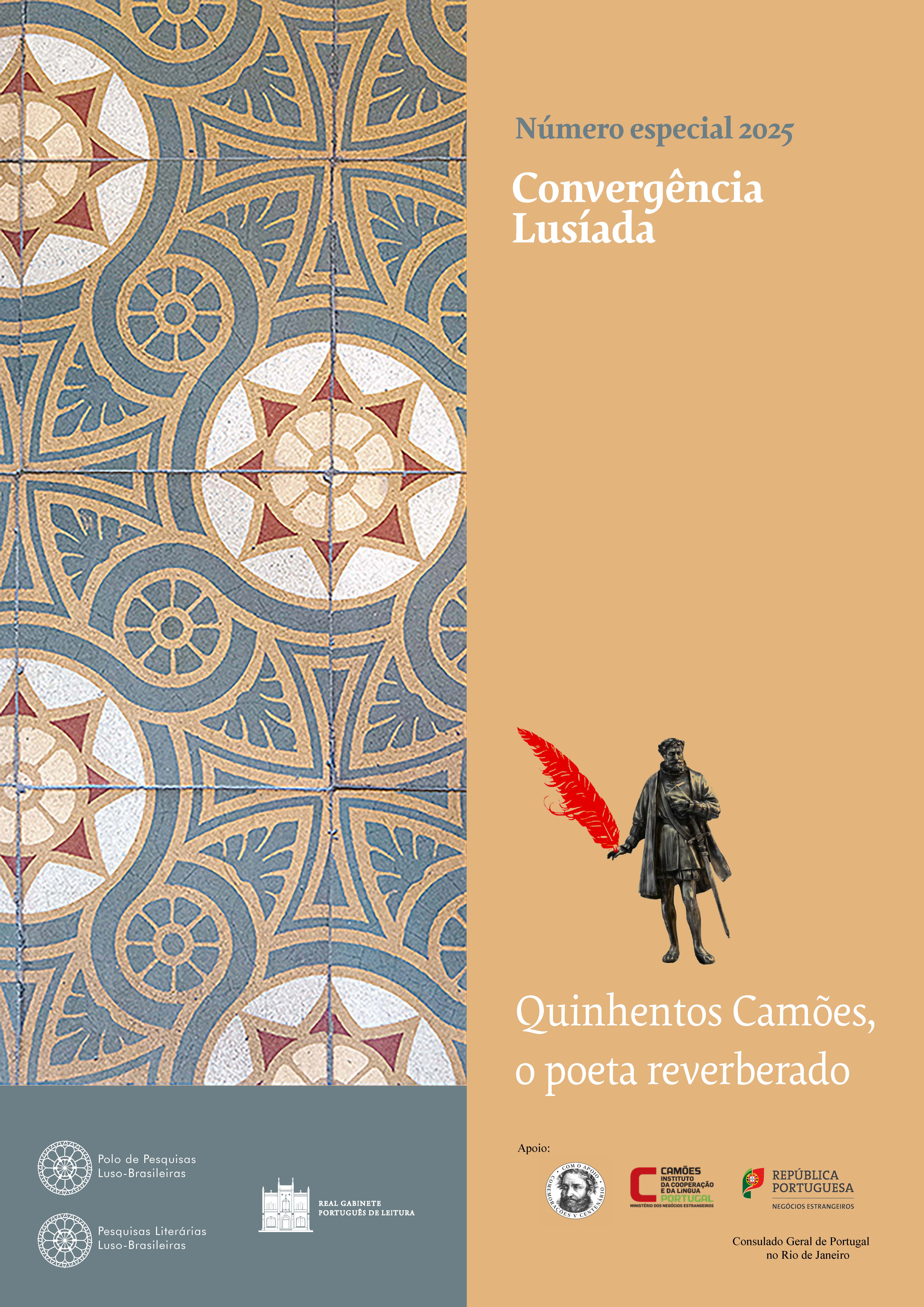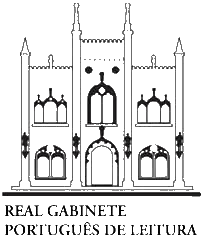Camões among african poets
DOI:
https://doi.org/10.37508/rcl.2025.nEsp.a1353Keywords:
Luís de Camões, Virgílio de Lemos, Rui Knopfli, Luís Carlos Patraquim, José CraveirinhaAbstract
The objective of our text is to highlight how Luís de Camões is recognized among African poets. As Mozambican literary critic Francisco Noa points out, there is a lyrical strand in Mozambican poetry that is structured around the Indian Ocean and the island of Mozambique, where Camões, Jorge de Sena and other poets passed through. Among the Mozambican poetic voices that celebrate Camões, we remember Virgílio de Lemos, an expert reader and culturist of Portuguese poetry, who wrote countless sonnets and odes to Camões. Rui Knopfli is another great Mozambican poet, who, in his poem “O Regresso dos Lusíadas” (The Return of the Lusiads), gives a critical rereading of Os Lusíadas. Also embracing an allegorical irreverence and subversion, we find poems by the Mozambican poet Luís Carlos Patraquim, parodying verses by Camões. Through wandering, Patraquim’s poetry, in the corrosive vein inaugurated by Knopfli, imposes itself as a counter journey to unveil some of the gaps in history. We can’t fail to mention the great poet José Craveirinha, the “Camões of Mafalala”, so named by the writer Mia Couto in 1991, not only because he won the Camões Prize and never left the outlying neighborhood of Mafalala, but for the seduction and clandestinity with which he was able to mix the orality of the ronga words of his black mother’s language with the Portuguese language inherited from his Algarvian father, who introduced him to the rhymes of Portuguese poets, including Camões, whom he admired and from whom he was able to capture the method of creating sonnets. Finally, we make a quick reference to the anti-epic poem As Quybyrycas, by Frey Ioannes Garabatus.
Downloads
References
BASTO, Maria-Benedita. “Camões” em Moçambique à Procura d’As Quybyrycas de Frey Garabatus. Cânone, Geopolítica e Descolonização. In: MACEDO, Ana Gabriela; BRUGIONI, Elena; PASSOS, Joana (ed.). O poder das narrativas: As narrativas do poder. Prémios literários. Porto: Edições Afrontamento, 2016. p. 53-74.
COUTO, Mia. Entrevista. JL. Lisboa, 13 ago. 1991. CRAVEIRINHA, José. Cela 1. Lisboa: Edições, 70, 1980a. CRAVEIRINHA, José. Maria. Maputo: Alcance, 2008.
CRAVEIRINHA, José. Xigubo. 2. ed. Lisboa: Edições, 70, 1980b.
GARABATUS, Frey Ioannes. As Quybyrycas (1972): poema éthico en outavas que corre como sendo de Luís Vaz de Camões em suspeitissima athribuiçon. Porto: Edições Afrontamento, 1991.
HUTCHEON, Linda. Teoria e política da ironia. Trad. Péricles Eugênio da Silva Ramos. Belo Horizonte: EdUFMG, 2000.
KLIPEL, Renata de Oliveira. As Quybyrycas como possibilidade de descolonização por dentro. Revista Desassossego, São Paulo, v. 15, n. 30, DOI: https://doi.org/10.11606/issn.2175-3180.v15i30p210-225
p. 210-225, jul.-dez. 2023. Disponível em: http://dx.doi.org/10.11606/ issn.2175-3180.v15i30p210-225. Acesso em 15 dez. 2024.
KNOPFLI, Rui. A Ilha de Próspero. 2. ed. Lisboa: Edições 70, 1989.
KNOPFLI, Rui. Antologia poética. Eugénio Lisboa (org.). Belo Horizonte: Ed. UFMG, 2010.
LEITE, Ana Mafalda. A fraternidade das palavras. Via Atlântica, São Paulo,
n. 5, p. 22, out. de 2002.
LEMOS, Virgílio de. Eroticus moçambicanus. Antologia poética. Organização e apresentação de Carmen Tindó Secco. Rio de Janeiro: Ed. Nova Fronteira; Fac. Letras da UFRJ, 1999.
LOBATO, Alexandre. Prefácio. In: KNOPFLI, Rui. A Ilha de Próspero: roteiro poético da Ilha de Moçambique. 2.ed. Lisboa: Edições 70, 1989, p. 11-23.
NOA, Francisco. Literatura moçambicana: memória e conflito. Itinerário poético de Rui Knopfli. Maputo: Universidade Eduardo Mondlane; Livraria Universitária, 1997.
NOA, Francisco. O Oceano Índico e as rotas da transnacionalidade na literatura moçambicana. In: NOA, Francisco. Uns e outros na literatura moçambicana. Ensaios. São Paulo: Editora Kapulana, 2017. p. 59-74
PATRAQUIM, Luís Carlos. Vinte e tal novas formulações e uma elegia carnívora. Lisboa: ALAC, 1992.
SAID. Roberto. O delito da palavra (posfácio). In: KNOPFLI, Rui. Antologia poética. Organizado por Eugénio Lisboa. Belo Horizonte: Editora UFMG, 2010. p. 189-206.
Downloads
Published
How to Cite
Issue
Section
License
Copyright (c) 2025 Carmen Lucia Tindó Tindó Secco

This work is licensed under a Creative Commons Attribution-NonCommercial 4.0 International License.
Authors who publish in Convergência Lusíada agree with the following terms:
- Authors retain copyright and grant the journal right of first publication with the work simultaneously licensed under a Creative Commons Attribution-NonCommercial 4.0 International License (CC-BY-NC 4.0) that allows others to share the work with an acknowledgment of the work's authorship and initial publication in this journal.
- Authors may enter into separate, additional contractual arrangements for the non-exclusive distribution of the journal’s published version of the work (e.g., post it to an institutional repository or publish it in a book), with an acknowledgment of its initial publication in this journal.
- Authors are permitted and encouraged to post their work online (e.g., in institutional repositories or on their website) prior to and during the submission process, as it can lead to productive exchanges, as well as earlier and greater citation of published work.

Revista Convergência Lusíada is licensed under a Creative Commons - Atribuição-NãoComercial 4.0 Internacional.









